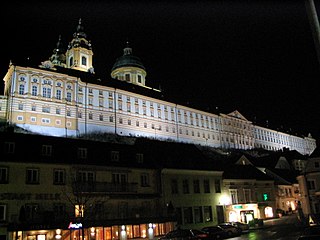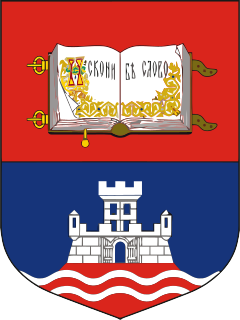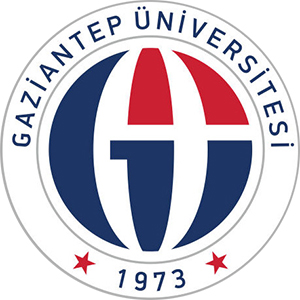Related Research Articles
A bachelor's degree or baccalaureate is an undergraduate academic degree awarded by colleges and universities upon completion of a course of study lasting three to seven years. In some institutions and educational systems, some bachelor's degrees can only be taken as graduate or postgraduate degrees after a first degree has been completed. In countries with qualifications frameworks, bachelor's degrees are normally one of the major levels in the framework, although some qualifications titled bachelor's degrees may be at other levels and some qualifications with non-bachelor's titles may be classified as bachelor's degrees.

Education in the Netherlands is characterized by division: education is oriented toward the needs and background of the pupil. Education is divided over schools for different age groups, some of which are divided in streams for different educational levels. Schools are furthermore divided in public, special (religious), and general-special (neutral) schools, although there are also a few private schools. The Dutch grading scale runs from 1 to 10 (outstanding).

A gymnasium is a type of school with a strong emphasis on academic learning, and providing advanced secondary education in some parts of Europe comparable to British grammar schools, sixth form colleges and US preparatory high schools. In its current meaning, it usually refers to secondary schools focused on preparing students to enter a university for advanced academic study. Before the 20th century, the system of gymnasiums was a widespread feature of educational systems throughout many countries of central, north, eastern and southern Europe.
A Bachelor of Education (B.Ed.) is a graduate professional degree which prepares students for work as a teacher in schools, though in some countries like Tanzania, Kenya and various other countries, additional tasks like field work and research are required in order for the student to be fully qualified to teach.

Doctor of Medicine is a medical degree, the meaning of which varies between different jurisdictions. In Canada and most other countries, the M.D. denotes an undergraduate degree awarded upon graduation from medical school. In the United States, and some other countries, the M.D. denotes a professional graduate degree. In the United States, this generally arose because many in 18th-century medical professions trained in Scotland, which used the M.D. degree nomenclature. In England, however, Bachelor of Medicine, Bachelor of Surgery was used and eventually in the 19th century became the standard in Scotland too. Thus, in the United Kingdom, Ireland and other countries, the M.D. is a research doctorate, higher doctorate, honorary doctorate or applied clinical degree restricted to those who already hold a professional degree in medicine; in those countries, the equivalent professional to the North American and some others use of M.D. is still typically titled Bachelor of Medicine, Bachelor of Surgery (M.B.B.S.).

The University of Belgrade is a public university in Serbia. It is the oldest and largest university in Serbia, and one of the most important educational and research centers in Europe.

Education in Belgium is regulated and for the most part financed by one of the three communities: Flemish, French and German-speaking. Each community has its own school system, with small differences among them. The federal government plays a very small role: it decides directly the age for mandatory schooling and indirectly the financing of the communities.

Education in Serbia is divided into preschool (predškolsko), primary school, secondary school and higher education levels. It is regulated by the Ministry of Education and Science of Republic of Serbia.
The Academy of Performing Arts in Prague is a university in the centre of Prague, Czech Republic, specialising in the study of music, dance, drama, film, television and multi-media. It is the largest art school in the Czech Republic, with more than 350 educators and researchers, and 1500 students.

The University of Niš is a public university in Serbia. It was founded in 1965 and consists of 13 faculties with 1,492 academic staff and around 20,500 students. Since its founding, the university diploma has been acquired by more than 50,000 students, including 1,300 foreigners.

The University of Kragujevac is a public university in Serbia. It was founded in 1976 and is organized in 12 faculties. It offers 118 study programs in the fields of natural sciences and mathematics, social and human sciences, medical sciences, engineering sciences, and arts. As of 2018–19 school year, there are around 14,000 enrolled students on undergraduate, graduate, doctoral, integrated and vocational studies.

Gaziantep University is a public university in Gaziantep, Turkey. Gaziantep University has 10 faculties, containing a total of 22 academic departments, with a strong emphasis on scientific and technological research.

Mathematical Grammar School, is a special school for gifted and talented students of mathematics, physics and informatics located in Belgrade, Serbia. It is ranked number one at International Science Olympiads by the number of medals won by its students.
Education in Croatia is a right defended by Article 66 of the Constitution which states that everyone is entitled to free compulsory education under equal conditions and in accordance with their aptitudes. Education is mandatory for children aged 6 to 14.

The Liceo de Cagayan University is a non-sectarian university in Cagayan de Oro City, Philippines. It has twelve colleges and five departments. It is the second largest university in Cagayan de Oro City, after Xavier University - Ateneo de Cagayan.

The National Taichung University of Education is a university in West District, Taichung, Taiwan. Founded in 1899 at the Confucian Temple in Changhwa county, it moved to the current site in 1923.
The University of Arts in Belgrade is a public university in Serbia. It was founded in 1957 as the Academy of Arts to unite four academies. It became a university and acquired its current name in 1973.

The Faculty of Security Studies is an independent faculty of the University of Belgrade. The Faculty’s programs cover philosophical, sociological, political, legal, economic, psychological, ethical, humanitarian, civilian-military, and other aspects of the security studies, human and social resources, defense, civil defense and environment protection.

The Belgrade Faculty of Medicine is a constituent institution of the University of Belgrade, which offers a wide range of academic courses in Serbian and English, including specialist practice within a network of hospitals, institutes and medical clinics. The School of Medicine includes 40 departments with over 200 professorships.
University "Haxhi Zeka" is a public university located in Peć, Kosovo.